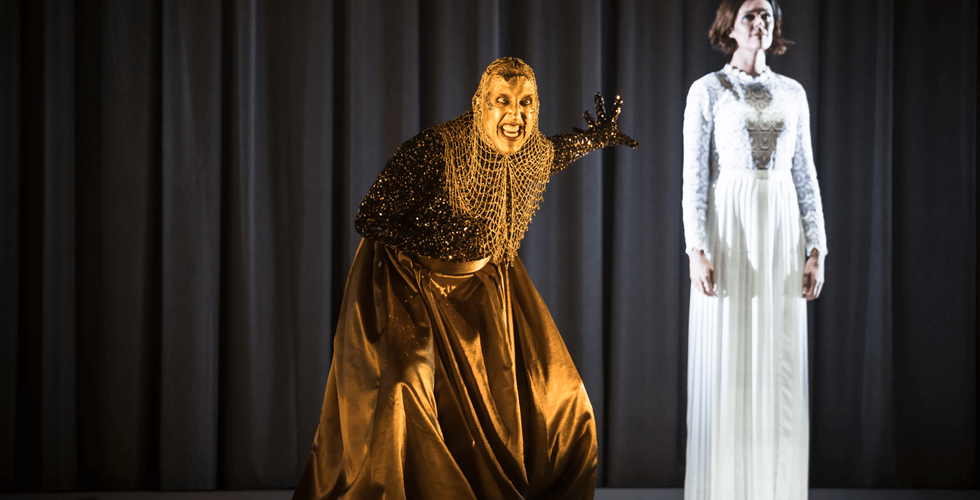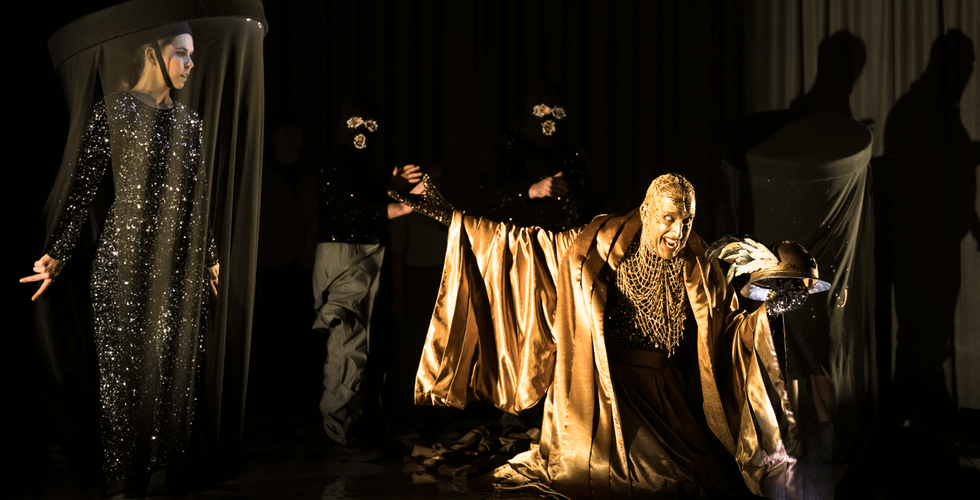Dido and Aeneas - Pinchgut Opera (NSW)
- Claira Prider

- May 31, 2024
- 4 min read
Composed by Henry Purcell. Libretto by Nahum Tate
Pinchgut Opera breathes new life into one of the best-known English operas with Kate Mulvany's contextually rich and explosive prologue
Reviewed by Claira Prider
Pinchgut Opera
City Recital Hall
May 30 - June 3 Pinchgut Opera presents Dido and Aeneas by Purcell | City Recital Hall | 30 May–03 Jun
Based on John Blow’s 1683 semi-opera Venus and Adonis, the tale of Dido and Aeneas saw the growth of a new genre: English Opera. Composed later in the 1680s, little is confidently known about the opera as the earliest surviving score is in the form of a manuscript that was found almost a century after it was written. This score had none of Purcell's original handwriting on it and was missing the prologue, much of the dance music, and an entire scene at the end of Act II. With so little known about its’ completion and original performances, this work gives creatives so much room to play and challenge and explore. With the commissioning of a prologue written by legendary Australian actor and playwright Kate Mulvany, this production brilliantly demonstrates how you can reinvigorate opera for the contemporary audience without the need for stadiums or extravagant effects.
From the directors note, Lucy Clements writes “At its heart, Dido and Aeneas is a tragedy about a woman pushed to the greatest possible measures to regain her agency after it has been stripped from her by an all-powerful and irrepressible magic. Now that’s a story as potent in 2024 as it was in 1685 or 19BCE.” The opera begins in the middle of Dido’s story after she’s been made a widow and refugee by her own brother, how she went on to find success in the city of Carthage and then met a man with whom she fell in love. Mulvany’s prologue retells the elements of Aeneid to help us understand Purcell’s setting contextualising Dido’s legacy and tragic curse.
Photography by Cassandra Hannagan
Leading the Orchestra of the Antipodes is Musical Director Erin Helyard, conducting the baroque ensemble from his Harpsichord. Having the orchestra set on ground level in front of the stage allows us to take in the not-often-seen baroque instruments as I find myself regularly popping my head up to see what instrument these incredible sounds are coming from.
The stage is empty, bordered on three sides by light grey curtains. Under stark, cold lights the work opens with the Sorceress played by Kanen Breen, dripping head to toe in gorgeous golden hues. As he slinks around the stage, Breen delivers Mulvany’s prologue with absolute commitment to this evil, magical, Voldemort-esque sorceress. The delivery and physicality of his performance is completely engrossing, reinforced by the eerily uncomfortable accompaniment from the orchestra, particularly from percussionist Kevin Man on the timpani and waterphone.
Morgan Moroney’s lighting design underpins the tumultuous nature of the text and score and heightens the drama of the piece, particularly with the conjuring of the storm and Dido’s lament. The stark, often cold white lighting reinforces the bare are raw world that Jeremy Allen’s design creates on stage. The costumes clarify the distinction between mortals and the underworld while adding timelessness and excitement especially in the camp and bizarre costumes of the witches and of course the Sorceress. Shannon Burns’ movement direction embodies 17th Century style dancing where the ensemble creates beautiful patterns, as well as lots of quick shifts for the changes in scene where ensemble performers are playing multiple roles. There are moments where the stage feels slightly empty with an ensemble of just eight singers, however they move extremely well in the dances (written by Purcell) which have been added to flesh out missing parts of the score. Vocally, the Cantillation ensemble are completely masterful as both a cohesive ensemble, as well as driving the plot playing various characters. Musically superb, their performance demonstrates the most intricately refined and informed musicality with a crisp and unified, baroque tone.
Soprano Valda Wilson brings an unapologetic gutsiness to the role of Dido, her acting skills standing up as well as her vocals. Wilson’s rich lower register embodies the opulence and torment needed for the role and her final lament is heart wrenchingly anguished and captivating. David Greco portrays a heartfelt and frenetic Aeneas, embracing the textural urgency of the score. I really enjoyed Greco's second aria, his coloratura is grounded and passionate as the audience become enveloped in his luscious tone. The blocking of this number facilitates great connection in this moment, which was so intimate that it made the rest of the performance feel somewhat distanced. Sara Macliver’s even and distilled tone fits the role of Belinda perfectly, her sparkling delivery of the melismatic passages is breathtaking, with exquisite yet understated ornamentation. The chemistry on stage is constantly gripping, exciting and slightly volatile as each of the performers present well developed, complex characters.
Pinchgut Opera are known for bringing authentic baroque opera and oratorio to life, and this productions’ new prologue breathes exciting new life into one of the best known English Operas. As always, Helyard and the Orchestra of Antipodes perfectly capture the baroque profile nuances with intuitive accompaniment which compliment the tension and release of the score, supporting the singers so beautifully - a highly entertaining night of world-class baroque performances.
Music - Henry Purcell (1659-1695)
Libretto - Nahum Tate (1652-1715)
Conductor - Erin Helyard
Director - Lucy Clements
Designer - Jeremy Allen
Lighting Designer - Morgan Moroney
Movement Director - Shannon Burns
Prologue Written By - Kate Mulvany
Orchestra - Orchestra of the Antipodes
CAST
Valda Wilson - Dido
David Grego - Aeneas
Sara Macliver - Belinda
Kanen Breen - Sorceress
Lana Kains - Second Woman, Ensemble
Michelle Ryan - First Witch, Ensemble
Stephanie Dillon - Ensemble
Olivia Payne - Spirit, Second Witch, Ensemble
Louis Hurley - Sailor, Witch, Ensemble
Jack Jordan - Ensemble
Andrew O'Connor - Witch, Ensemble
Freddy Shaw - Ensemble






























%20(1).png)
Comments